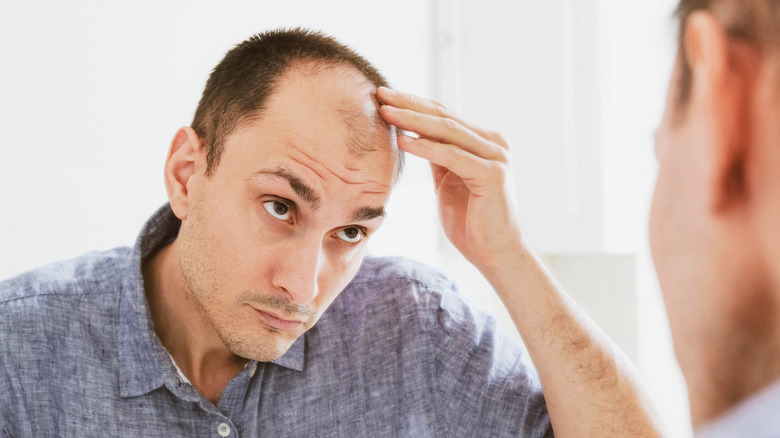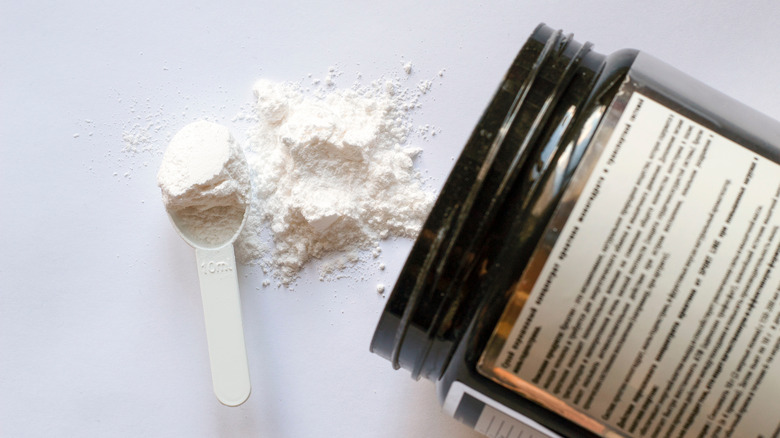Does Creatine Cause Hair Loss?
Creatine is a supplement that is popular among athletes and fitness buffs. Naturally found in the cells of our muscles, creatine can effectively help you power through long workouts by continuing to provide energy to your muscles (via Healthline). It has also been found to increase muscle mass in athletes by reducing the breakdown of protein during exercise. It can even speed up muscle recovery, which can be quite useful for people training and working out daily.
Clearly, there are many reasons to think about taking creatine if you're an athlete or fitness enthusiast. However, there are some concerns that it might have some unpleasant side effects like hair loss. According to Healthline, most of the evidence that suggests creatine causes hair loss is anecdotal. One small 2009 study did find that rugby players saw an increase in the hormone dihydrotestosterone (DHT) after taking creatine for three weeks (via PubMed). DHT is a hormone that is associated with hair loss. Given the current data, it would be incorrect to say that creatine causes hair loss. However, this supplement may increase levels of the hormone DHT, which is associated with hair loss.
What are the side effects of creatine?
Like any supplement, creatine comes with several potential side effects. This supplement has been widely studied and is considered safe for most people to take in moderate doses (via Medical News Today). However, if you take creatine in high doses, it can cause some unpleasant side effects like nausea, stomach pain, diarrhea, and muscle cramping. It may also cause temporary weight gain in some people due to water retention in the muscles. However, this weight will reduce back to normal levels once you stop taking creatine.
The long-term effects of creatine are not known, especially when it comes to adolescents. This supplement is also not approved by the FDA, so any product should be used with caution. It is best taken by people who eat a well-balanced diet and are generally healthy. It's always a good idea to speak with your healthcare provider before trying any new supplements. Knowing your health history, they can determine whether or not creatine should be safe for you to take.

